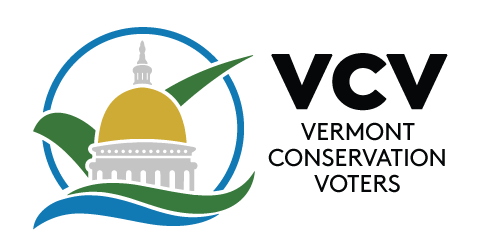“Plastic waste is all around us and it’s getting worse by the day,” said Paul Burns, executive director of the Vermont Public Interest Research Group. “Not only is the amount of plastic waste increasing, but nearly all of the plastic junk that’s ever been created is still with us. It doesn’t biodegrade. It just gets smaller and smaller and releases its toxic elements into our air and water.”
Our report identifies food items needlessly wrapped in plastic, including fresh produce like potatoes, garlic, peppers, and more. These same items are sold in many stores without any plastic wrapping at all. We urge shoppers to skip the plastic and let retailers know you prefer your produce plastic-free.
Other plastic products coming in contact with food include black plastic kitchen utensils, black plastic trays, and take-out containers. A separate peer-reviewed study released just last month by Toxic Free Future uncovered high levels of cancer-causing, hormone-disrupting flame retardant chemicals in a variety of household products made with black plastics.
“When plastic electronics that contain highly toxic flame retardants are recycled into products we use in our home kitchens every day, we have a serious problem,” said Lauren Hierl, executive director of the Vermont Natural Resources Council. “Your black plastic spatula, the black plastic tray your hamburger sits on at the grocery store, or the black plastic utensils you get with your takeout meal all may be contaminated with worrisome levels of toxic flame retardants,” she added.
The report identifies alternatives to the troublesome black plastic items, including silicone or wooden kitchen utensils – items that could make good stocking stuffers.
VPIRG environmental associate Alexis Drown pointed out excessive plastic packaging on a number of items, including toys, dolls, and items ordered via online shopping. A large yellow box at the news conference was from the online photo framing company Keepsake Frames. It was twice as big as necessary for the five framed photos it contained, and it was stuffed with a large mound of plastic bubble wrap.
“Everyone wants the products they order online to be delivered safely,” said Drown. “But companies must do a better job of cutting down on plastic waste. They need to start taking responsibility for the waste they generate and the environmental harm they cause.”
Drown added that the plastic waste associated with shipping can be avoided entirely by shopping locally whenever possible, which is good for the health and vitality of our communities and businesses too. When packaging material is needed, there are Vermont businesses ready to provide natural alternatives to plastic as well. For example, Sylvacurl is a company based in Hardwick, VT that makes packing material made of wood shavings. The material is highly effective in keeping products safe and can be reused or safely composted when it’s no longer needed.
“’Tis the Season” notes that single-use cameras are making a comeback, which is a loss for the environment. “Most people carry a high-quality camera in their pocket all the time,” said Drown. “It’s also a computer and is commonly referred to as a phone. The world does not need another throwaway camera.”
Our research found that a pair of Adidas track pants popular with teens and pre-teens apparently contained more than a dozen chemicals or compounds that appear on the Vermont Department of Health’s list of Chemicals of High Concern to Children. Other well-known brands made similar disclosures to the Health Department, as they are required to do under Act 188, which was enacted in Vermont a decade ago. While the law requires disclosure of toxic chemicals in children’s products, the information remains very difficult for the public to access. Still, this is another area where businesses must do better, according to Burns.
A study published in Marine Pollution Bulletin found that approximately 500,000 microscopic fibers could be released into wastewater each time polyester track pants like those included in the report are washed in a household washing machine. Many of the particles could carry toxic chemicals and would likely pass through sewage treatment and into the environment.
“Whether it’s textiles, kitchen utensils, Barbie dolls, or baking potatoes, it’s time to dramatically cut back on wasteful and toxic plastics,” said Burns. He noted there’s a role for businesses, policymakers, and consumers to play.

